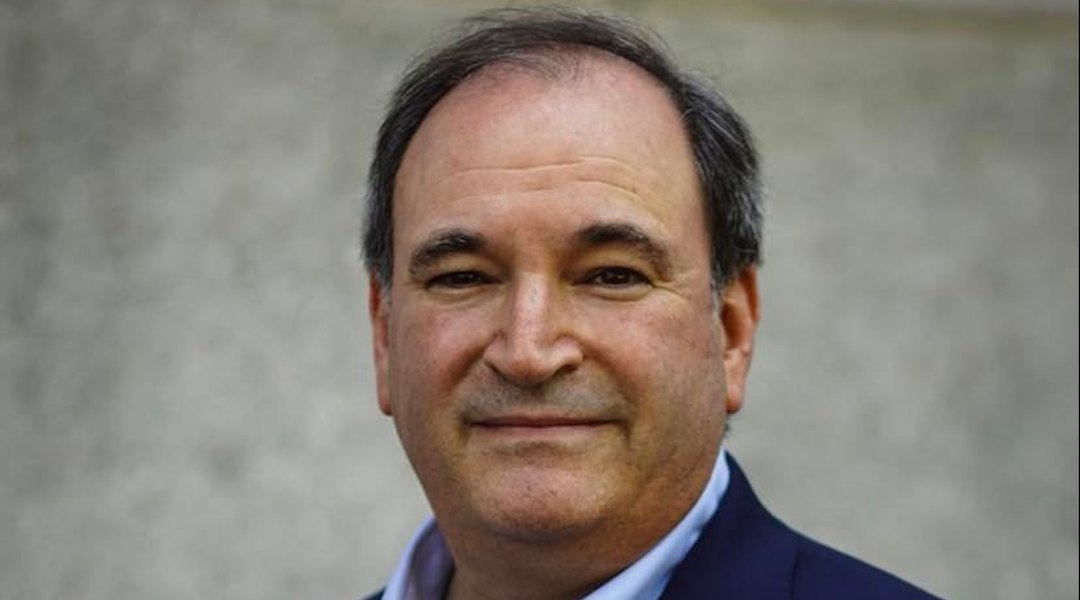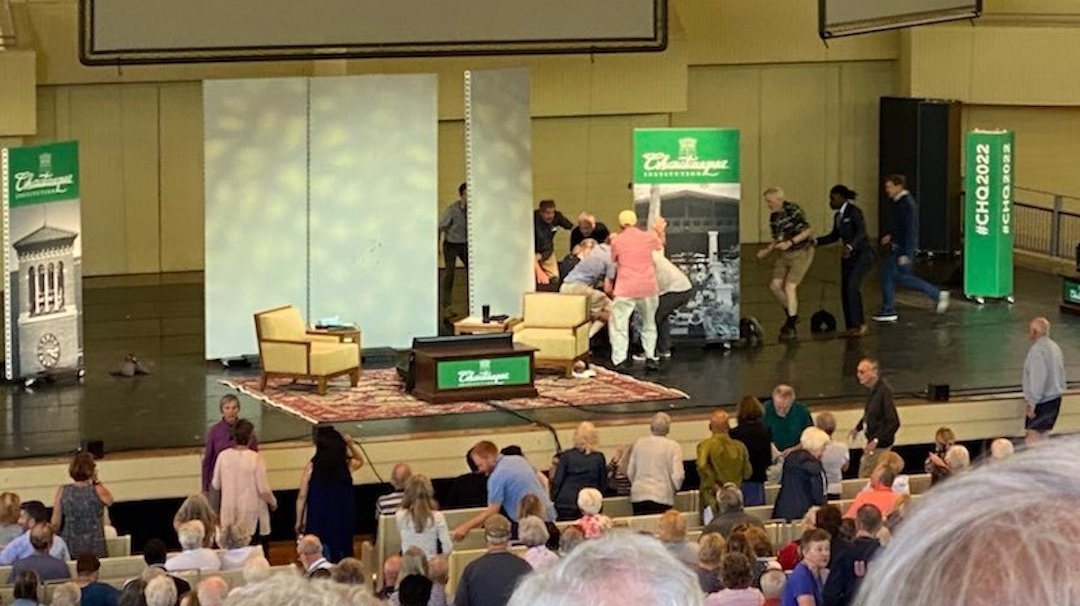(New York Jewish Week) — Rabbi Charles Savenor was on vacation with his family and decided it would be a treat to hear author Salman Rushdie speak Friday at The Chautauqua Institution in western New York State.
“We heard a lot about Chautauqua, that [it] is sort of like Limmud for the general world,” the Upper West Sider told the New York Jewish Week, referring to the Jewish-run learning festivals. “They have speakers and music and religious themes as well. It looked like a great opportunity to relax and reflect and have a mind and soul-expanding experience.”
But that soul-expanding experience turned nightmarish seconds after Rushdie and the moderator took the stage at about 10:45 a.m.
“I was sitting about 75 feet away and could see a guy jump up on stage,” he said. “All I could see was the guy’s hand going up and down and they were both quickly on the ground.
A man later identified as Hadi Matar, 24, had rushed the stage and repeatedly stabbed the 75-year-old author, who drew the ire of Muslim fundamentalists and a death threat from Iran’s then top leader with the 1988 publication of his book “The Satanic Verses.”
Savenor said he had taken his phone out expecting to take a picture of Rushdie and wound up taking a picture of the aftermath of the attack. The photo shows event organizers attending to the fallen author and audience members standing and milling in obvious confusion.
At the time, he said, he had no idea of the status of the authors’ health.
“It was very disturbing to see,” Savenor said. “Everyone there was worried.”
According to media reports, Rushdie remains hospitalized with damage to his liver and severed nerves in an arm and is likely to lose an eye. Event moderator Henry Reese, 73, was treated for a facial injury and was released from a hospital.
Matar was arrested at the scene and charged with second degree attempted murder and assault with a weapon.
Savenor said there were no metal detectors at the Rushdie talk, but a badge was required to get into the event. He said the thought briefly crossed his mind shortly before the attack that he didn’t see obvious security.
“I spoke to people who said nothing like this had ever happened before,” Savenor said, adding that he was told Rushdie spoke there more than a decade ago without incident.

Rabbi Charles Savenor, executive director of Civic Spirit, witnessed the attack of Salman Rushdie on Aug. 12, 2022. (Courtesy of Rabbi Charles Savenor)
Savenor, the former director of congregational education at Park Avenue Synagogue, was recently named the executive director of Civic Spirit, a nonprofit that promotes civic education in schools from a non-partisan, multifaith perspective. The group’s message is perhaps the exact antithesis of the religious intolerance that led to decades of death threats against Rushdie. Savenor’s last Facebook post before the picture of the attack was “All You Need Is Love” — a nod to Tu B’Av, the Jewish holiday of love celebrated shortly after Tisha B’Av, the fast day that is in part a day to rue internal religious strife.
Savenor said the irony was not lost on the crowd that the attack on Rushdie came during an event that was was supposed to be about freedom and the safety of exiled writers.
“I expected that he might speak about the threats against him during the talk,” Savenor said. “I did not expect to see an attack.”
Jewish groups have long pointed to Iran’s death threat against Rushdie to warn about the dangers of the Islamic regime, especially in its conflict with Israel. “Tehran celebrating the stabbing of @SalmanRushdie highlights the urgent need to acknowledge the threat of #Iran,” Anti-Defamation League CEO Jonathan Greenblatt tweeted Friday. “Rushdie has received death threats from the Iranian regime for decades. This is further evidence of Iran’s malign influence in the US and abroad.”
The New York Jewish Week brings you the stories behind the headlines, keeping you connected to Jewish life in New York. Help sustain the reporting you trust by donating today.





